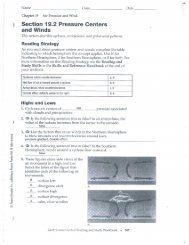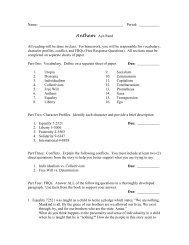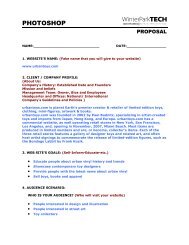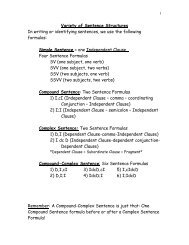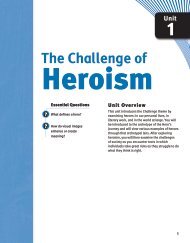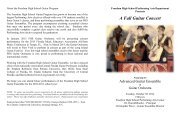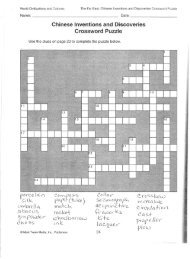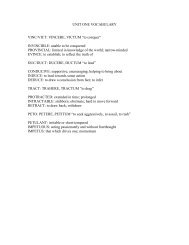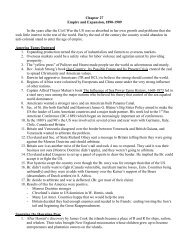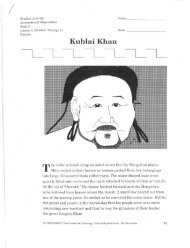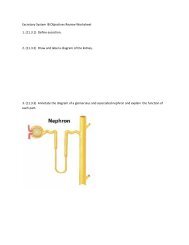Imperialism Notes 1890-1913
Imperialism Notes 1890-1913
Imperialism Notes 1890-1913
Create successful ePaper yourself
Turn your PDF publications into a flip-book with our unique Google optimized e-Paper software.
-- If Britain refused to accept it, U.S. would go to war.<br />
E. Britain had no real urge to fight (despite naval superiority of 32-5 in battleship class<br />
warships)<br />
1. Biggest reason for British concern: Boer War in South Africa<br />
2. Canada still vulnerable<br />
3. British merchant marine vulnerable to American commerce raiders.<br />
4. British preoccupied with German naval threat and Russian & French unfriendliness.<br />
F. London consented to arbitration.<br />
G. Results<br />
1. Prestige Monroe Doctrine enhanced<br />
2. Latin American republics pleased by U.S. determination to protect them.<br />
3. Britain courted U.S. for friendship in the face of the continental threat.<br />
-- Left U.S. able to pursue aggressive foreign policy w/o British reprisals.<br />
III. Hawaii<br />
A. Since early 19th century, America gradually came to regard Hawaiian Islands as an<br />
extension of the Pacific Coast.<br />
B. <strong>1890</strong>, McKinley Tariff raised barriers against Hawaiian sugar.<br />
-- American sugar planters sought annexation as it would eliminate tariffs.<br />
C. Queen Liliuokalani, a nationalist, insisted Hawaiians should control Hawaii<br />
--White planters, mostly Americans, alarmed at Queen’s policies and American tariff.<br />
D. Tiny minority of white planters led by Sanford B. Dole organized successful revolt in<br />
1893.<br />
1. Openly assisted by American troops who landed under unauthorized orders of U.S.<br />
minister in Honolulu, John C. Stevens.<br />
2. Stevens: “The Hawaiian pear is now fully ripe and this is the golden hour for the<br />
U.S. to pluck it.”<br />
3. Treaty for annexation rushed to Washington<br />
E. Before treaty could be passed through Senate, Cleveland assumed office and refused to sign<br />
any annexation bill and sent special investigator to Hawii.<br />
1. Findings indicated majority of Hawaiians did not favor annexation:<br />
2. Provisional gov’t had been established by force<br />
3. Cleveland ordered troops to be removed<br />
F. Results<br />
1. Cleveland unsuccessful in reinstating the queen.<br />
a. U.S. public opinion would not have tolerated force to unseat white planters.<br />
b. Revolutionaries proclaimed a Hawaiian Republic on July 4, 1894 with Dole<br />
as president.<br />
2. Annexation abandoned until 1898; Dole served as territorial governor from 1900-03<br />
3. First full-fledged imperialistic debate in U.S. history.<br />
a. Cleveland savagely criticized for trying to stem the new Manifest Destiny.<br />
b. Cleveland’s motives honorable in the face of international imperialism..<br />
IV. Cuba<br />
A. Atrocities in Cuba sensationalized (and even made up) by “yellow press”<br />
1. Spanish misrule as well as the devastating Wilson-Gorman Tariff of 1894 damaged<br />
Cuba’s sugar-based economy (many plantations owned by Americans)




